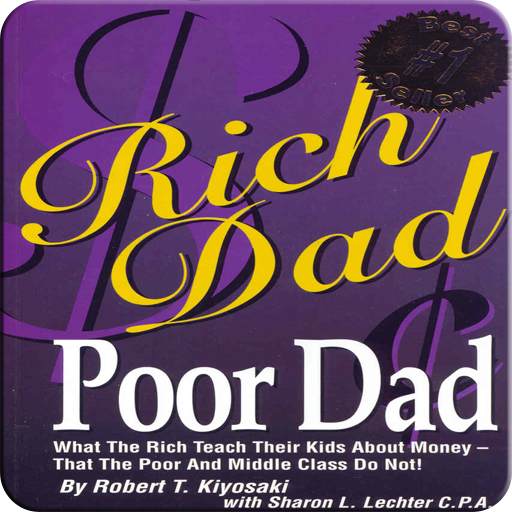Lesson 2: Why Teach Financial Literacy?
第二課 為什么要教授財(cái)務(wù)知識(shí)
In 1990, my best friend Mike took over his father’s empire and is, in fact, doing a better job than his dad did. We see each other once or twice a year on the golf course. He and his wife are wealthier than you could imagine. Rich dad’s empire is in great hands, and Mike is now grooming his son to take his place, as his dad had groomed us.
1990年,邁克接管了富爸爸的商業(yè)王國(guó),事實(shí)上,他比富爸爸做得還好。我們每年都會(huì)在高爾夫球場(chǎng)上見(jiàn)一兩次面。他和他妻子的財(cái)產(chǎn)多得難以想象。富爸爸的王國(guó)被管理得很好,現(xiàn)在邁克已經(jīng)開(kāi)始訓(xùn)練他的兒子接班了,一如富爸爸當(dāng)年訓(xùn)練我們。
In 1994, I retired at the age of 47, and my wife Kim was 37. Retirement does not mean not working. To my wife and me, it means that, barring unforeseen cataclysmic changes, we can work or not work, and our wealth grows automatically, staying way ahead of inflation. I guess it means freedom.
1994年,我退休了,那時(shí)我47歲,我妻子37歲。退休并不是因?yàn)槲覀儧](méi)事可干。對(duì)于我和我妻子來(lái)說(shuō),只要不發(fā)生意想不到的大事。我們就完全可以選擇工作或是不工作,我們的財(cái)富可以不受通貨膨脹的影響,自動(dòng)增長(zhǎng)。我想這就是自由。

The assets are large enough to grow by themselves. It’s like planting a tree. You water it for years, and then one day it doesn’t need you anymore. Its roots are implanted deep enough. Then the tree provides shade for your enjoyment. Mike chose to run the empire, and I chose to retire.
資產(chǎn)已經(jīng)多到可以自我增值,就像種樹,你年復(fù)一年地澆灌它,終于有一天它不再需要你的照料了。它的根已經(jīng)長(zhǎng)得足夠深,你現(xiàn)在可以開(kāi)始享受它帶給你的陰涼了。邁克選擇經(jīng)營(yíng)他的商業(yè)王國(guó),而我選擇了退休。
Whenever I speak to groups of people, they often ask what I could recommand or, what could they do, how do I get started? Is there a book I'd recommend? What is the secret to success? I simply say to them what my rich dad said back to me when I was a little kid. If you want to be rich, you need to be finacially literate. That idea was drummed into my head everytime we were together. As I said my educated dad stressed the importance of reading books while my rich dad stressed the need to master financial literacy.
現(xiàn)在,我常面對(duì)許多人講演,他們總是問(wèn)我能給他們什么理財(cái)建議或是他們應(yīng)該怎么做才能致富,我該怎樣開(kāi)始?有什么好書嗎?成功的秘訣是什么?我只是告訴他們富爸爸在我小的時(shí)候?qū)ξ艺f(shuō)過(guò)的話,如果你想發(fā)財(cái),就要學(xué)習(xí)財(cái)務(wù)知識(shí)。每當(dāng)我和富爸爸在一起的時(shí)候,這個(gè)觀念都會(huì)縈繞在我的腦海中。就像我說(shuō)的,我那受過(guò)高等教育的爸爸強(qiáng)調(diào)的是讀書的重要性,而富爸爸則強(qiáng)調(diào)要掌握財(cái)務(wù)知識(shí)。
If you are going to build the Empire State Building, the first thing you need to do is dig a deep hole and pour a strong foundation. If you are going to build a home in the suburbs, all you need to do is pour a six-inch slab of concrete. Most people, in their drive to get rich, are trying to build an Empire State Building on a six-inch slab.
如果你要去建造帝國(guó)大廈,你要做的第一件事就是挖個(gè)深坑,打牢地基。如果你只是想在郊區(qū)蓋個(gè)小屋,你只須用混凝土打15厘米厚的地基就夠了。大多數(shù)人在努力致富時(shí),總是試圖在15厘米厚的混凝土上建造帝國(guó)大廈。












